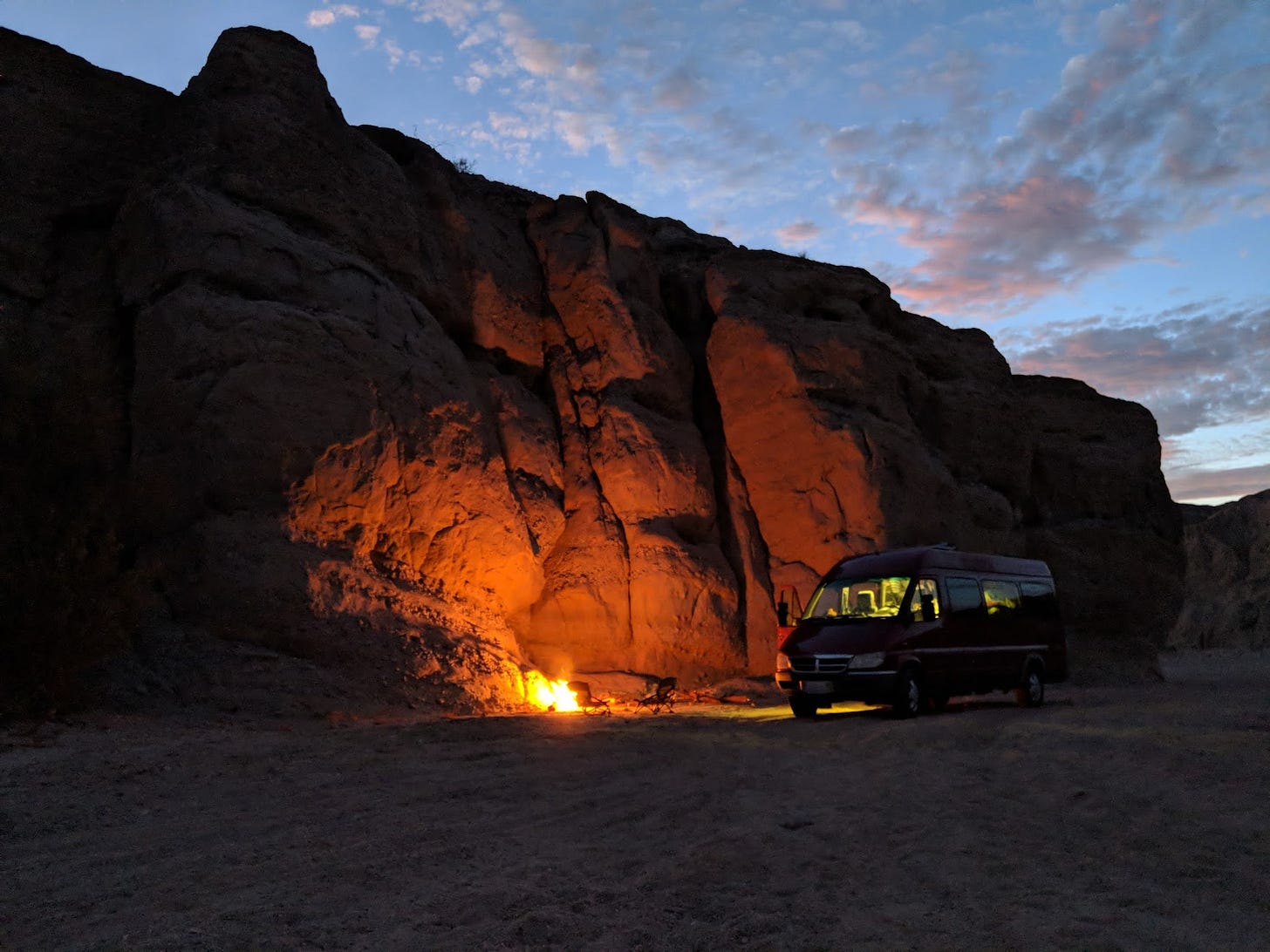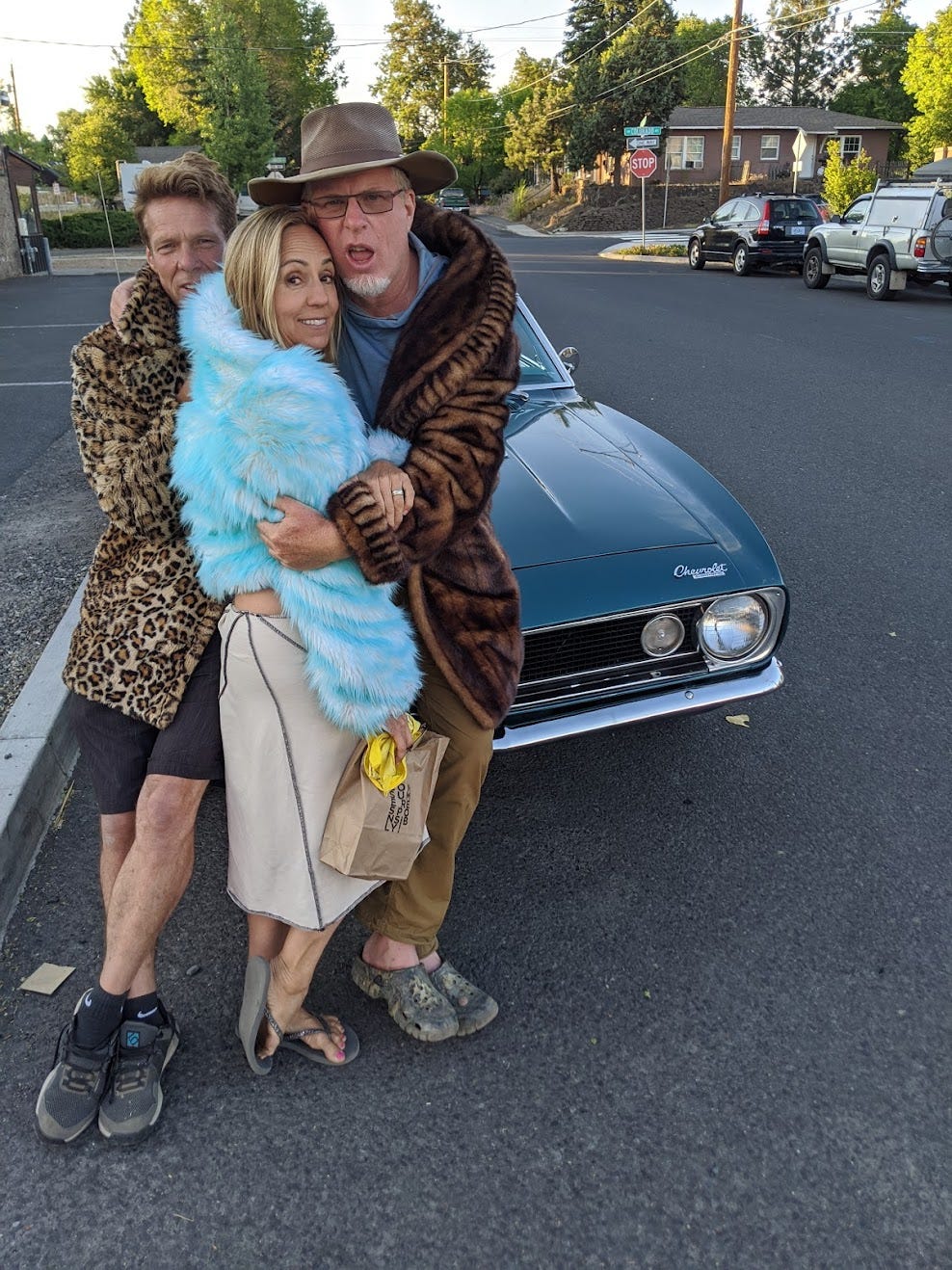Revolutions are like dogs. The small ones make the most noise. Bombs explode, crowds chant, leaders proclaim, sirens wail, helicopters hover. But these loud revolutions often don’t result in much real change. “Meet the new boss -- same as the old boss.” But quiet revolutions, like truly dangerous dogs, tend not to announce their arrival. They sneak up on you. They come in all nonchalant and tsunami unstoppable. By the time you notice that something’s happening, it’s too late to do anything about it.
We live in a time that’s begging for revolution. The old world is dead, and it’s high time we buried the stinking corpse. The playright Arthur Miller once said, “An era can be considered over when its basic illusions have been exhausted.” Look around. Our basic illusions lie sprawled about like spent marathon runners at the finish line.
Wall Street is a safe place for your retirement fund. Ha!
A university education is a ticket to prosperity. Right.
Modern medicine makes us all healthier. Please.
Government? Religion? Consumerism? The American Dream?
Wake the fuck up already.
The invention of the printing press in 1440 resulted in the unprecedented spread of subversive ideas. This quiet technological tweak changed the world far more dramatically (and lastingly) than any number of bloody revolutions punctuated by screams, explosions, and angry speeches.
I suspect that podcasting may one day be seen as equally revolutionary in its impact on the path of civilization — if not more so. While books are still somewhat expensive to produce and distribute almost 600 years later, podcasts cost nearly nothing — and distribution is effortless and immediate.
I’ve been making my podcast for about a decade now, and I’m still amazed by the unobtrusive power of the process. I sit down and turn on a microphone and push a few buttons. After an hour or two I push another button and it’s done. Within a few days, the equivalent of a small stadium-full of people may have listened. Big-shot podcasters like Dan Carlin, Joe Rogan, and Marc Maron are talking to the equivalent of entire towns, cities, or small nations. And because every episode is archived online, there’s no telling how many minds will ultimately tap into these conversations.
This reach is nearly free for the producer as well as the audience. All my podcasting gear cost me less than $1,000, plus the computer, which I already had. A hosting service runs about $20/month. No studio to rent. No technicians turning things on and off. No producers, assistants, or publicists. Just me, a recorder, some microphones, a laptop, and often, a guest. And because this process is so cheap, there’s no need for big corporations to get involved, looking over my shoulder, telling me to avoid this word, skirt that issue, or disinvite a potentially controversial guest. My goal is simply to have a conversation that’s as organic as possible with anyone who interests me.
In addition to being so simple, podcasting is mobile. In addition to the U.S., I’ve recorded episodes in Mexico, Thailand, South Africa, Botswana, Guatemala, Costa Rica, Canada, Holland, Spain, and probably a few more countries I’m forgetting. I spend most summers living in “Scarlett Jovannson,” my big red Sprinter van, cruising around the western U.S., uploading episodes from cafes, libraries, restaurants, churches and anyplace else who will let me use their wifi.
Tangentially Speaking has revolutionized my own life. A lot of people seem to think of me as a writer, but I don’t really love to write. I love having written, as they say. But I love doing the podcast. During the age of COVID, I had to record a lot of episodes remotely, but I didn’t like it. I missed the simple, essential joy of sharing physical space with my guest. Their eyes and body language hint at where the conversation can flow most naturally. There’s an intimacy in good conversation, and I’ve never felt right just disconnecting abruptly after sharing that connection. Maybe that’s why a lot of guests on the podcast have become close friends, ranging from (actor/comedian) Simon Rex, to (“The Iceman”) Wim Hof, to big-wave surfer Kyle Thiermann, to Callie Russell, who survived 92 days alone in the arctic.
I’ve met a lot of listeners as well, many of whom have also become permanent parts of my life. When he heard me talking about how I’d like to get a van, Oliver, an auto mechanic, reached out to offer his help in finding/outfitting it. Now, he and his wife Cheryl are among my closest pals.
On my first summer trip in the van, in 2016, Jonathan, Jillyn, and their pal Connor invited me to float down Montana’s Flathead river with them. We’ve been friends ever since.
Tom and Judy invited me to use their washing machine in Bend, Oregon that summer. We ended up going to Burning Man together that year, and are still very close friends.
I’ve met some of you in bars, supermarkets, gas stations, airports, walking down the street. Hell, backpackers recognized me on five separate occasions in a little town called Pai, in northern Thailand! If it sounds like my tiny taste of fame has gone to my head, please forgive me. I’m just mystified by it. And I’m immensely grateful for it, too, because all the people I’ve met have been fantastic. What could be more enriching than something that brings a flow of quality people into our lives? So, while I wouldn’t presume to say exactly what listeners get from the podcast, I can tell you that I get a hell of a lot from it.
Will podcasting add up to anything on a global scale? I don’t know. I’d love to hear your thoughts on the question in the comments. In any case, it’s clear that many of us are making radical changes in how we live on this planet, how we envision “success,” and how we build and maintain community. Western civilization is overdue for a cleansing, renewing revolution, and I’m convinced that the deepest revolutions sound a lot like unscripted, uncensored, uninhibited conversation. Here’s hoping.
This is the kind of personal post that will only be for paid subscribers soon. If you would like to support this little corner of the revolution, I hope you’ll consider a paid subscription.









As someone who has been in an intellectually impoverished environment for most of his life, Podcasts are like pulling up a chair and sitting in on a really great conversation.
We all know that children are a product of the environment they develop in. Most people with witty and timely senses of humor developed that skill at the nightly dinner table with 6 other people competing to make the table burst into laughter. We still understand very little about the human brain. It is a mystery. The experiences that each person encounters shape who they will become. As for me? I would say my father is a good-hearted man. So is my mother. But a steady dose of alcohol, 9-5 jobs, Fox News, and "bubble-life" have led to some pretty irrational and close-minded ideas and perspective on the world we live in and the purpose of life. I would also expect that most adults fall into this category.
What I think podcasters such as yourself, Duncan Trussel, Aubrey Marcus, Russel Brand, Joe Rogan, Tim Dillon, etc. do for a young man(21 yo) like me is quite literally... save my life. I don't know who I would be without the countless hours of honest thought and conversation about REAL SHIT being blasted into my conscious mind. It cannot be overstated how revolutionary this is. I mean just think about it. If this was 100 years ago, I would've never been able to sit down in a room with you every week and be a fly on the wall for countless amazing mind-bending and expanding conversations. I would only be able to read your book and that's it.
(I'm writing this quickly as I just got home from work and haven't eaten yet, but I just wanted to share this idea with you.)
Podcasts create equal opportunity for our generation. As discussed on the podcast, in the hunter-gatherer tribes, if your mom and dad were assholes and didn't care about raising you properly and showing you the tips and tricks of how to be a loving, happy, conscious, amazing person... you had a whole village of people who could pick up the slack and raise you as your own. As we shifted to a more civilized society, this became decreasingly the case. The lottery of where, when, and what life you're born into, became increasingly reliant upon the content of character of those individuals living beside you in the household. As we moved into the Information Age with the advent of the Internet, the pendulum began to shift.
Guys like me can listen to a seasoned vet such as yourself and absorb your wisdom that wasn't provided to me by my parents. The advantage of having cool, understanding, and insightful folks is becoming increasingly irrelevant(for lack of a better word). This is because of people like you Chris. I appreciate you. You are a person like me, but a very important one to so many. I hope you see this.
-Ryan